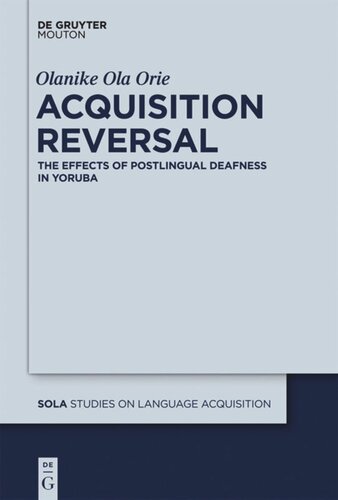

Most ebook files are in PDF format, so you can easily read them using various software such as Foxit Reader or directly on the Google Chrome browser.
Some ebook files are released by publishers in other formats such as .awz, .mobi, .epub, .fb2, etc. You may need to install specific software to read these formats on mobile/PC, such as Calibre.
Please read the tutorial at this link: https://ebookbell.com/faq
We offer FREE conversion to the popular formats you request; however, this may take some time. Therefore, right after payment, please email us, and we will try to provide the service as quickly as possible.
For some exceptional file formats or broken links (if any), please refrain from opening any disputes. Instead, email us first, and we will try to assist within a maximum of 6 hours.
EbookBell Team

5.0
50 reviewsThis is the first comprehensive account of prolonged hearing loss and its impact on a language that was once spoken fluently. Although it is currently assumed that hearing loss results in speech deterioration, it is shown that language loss occurs when speakers remain deaf for a long time. The reader is introduced to a significant deaf population — postlingually deafened Yoruba speakers who have been deaf for more than twenty years and who have no access to hearing aids or speech therapy. After becoming deaf, they continue to speak Yoruba from memory and “hear” visually through lip reading. These speakers exhibit phonological, lexical and syntactic losses which mirror acquisition patterns attested in the speech of Yoruba children. Based on these similarities, it is argued that a direct link exists between language loss and first language acquisition. It is further argued that prolonged deafness results in language reversal. Finally, the book presents the first description of the sign language and gestures used by deafened speakers to augment their spoken language. These findings will be of value to linguists, speech, language and hearing therapists, anthropologists, Africanists, deaf studies researchers, and non-specialists who are interested in hearing health and wellness.